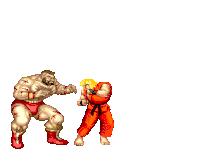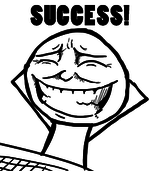- Joined
- Nov 8, 2009
- Messages
- 30,479
- Reaction score
- 12,781

The history of the UFC is rich with untold stories, especially when it comes to its early days. One of the most intriguing possibilities never realized was a potential matchup between two legends of combat sports: Rickson Gracie, the Brazilian Jiu-Jitsu icon, and Aleksandr Karelin, the Russian Olympic wrestling champion. UFC founder Art Davie recently revealed in an interview that this dream almost came to fruition, but financial and logistical hurdles kept it from happening.
UFC Founder Art Davie Reveals How The Gracie Family Shaped Early Events
In an interview on the LytesOut podcast, UFC founder Art Davie shared valuable insights into how the Gracie family, particularly Rorion Gracie, had a major impact on the UFC’s early events. Davie detailed how he connected with Rorion after reading an article about the “Gracie Challenge” in a library, which ultimately led to the creation of UFC. Their collaboration was instrumental in shaping the first UFC events, and Rorion played a crucial role in selecting talent for the tournament.
However, Rorion’s involvement wasn’t without internal friction, especially when it came to selecting which member of the Gracie family would represent them in UFC 1. While Rickson was considered the family’s best talent, Rorion chose his brother Royce to participate.
According to Davie, “Rickson was definitely the family champion… but Rorion and Rickson in the same room was electric because there was tremendous friction.” Rorion’s decision was also influenced by Rickson’s poaching of students, which led to him being excluded from the first UFC event.
“Rickson was definitely the family champion. Everybody told me that the best st reet fi ghter was Relson, but Relson would use a bottle or a brick … Rickson , on the other hand, would do Jiu-Jitsu. Having Rorion and Rickson in the same room was electric because there was tremendous friction. Rorion discovered that Rickson had been taking students and teaching them in his garage in Torrance. It happened twice, and when it happened a third time, Rorion basically said to me, ‘There’s no Rickson for the event.’ I asked, ‘Who’s it gonna be?’ He said, ‘It’s gonna be Royce. He’s said to be the kid brother.’ I knew that Rickson had a driver’s license, but he had no checking account, no credit card, and lived in a small room above the Gracie garage.”
UFC Founder Struggled to Recruit Top Talent for First Event
Recruiting for UFC 1 in 1993 proved to be an arduous task for Davie. He faced considerable resistance from established martial artists who were hesitant to risk their reputations in the unregulated and controversial competition.
“I got a lot of response but I got people who didn’t really want to put up their reputation when I explained what the rules were,” Davie confessed during his LytesOut podcast interview.
Despite Davie’s extensive outreach efforts, including sending faxes to martial arts organizations across Europe, Asia, and North America, many potential stars declined to participate due to the minimal rules format. The inclusion of a death clause in the agreement caused significant negative press, including an editorial in The New York Times that mocked the event, stating, “death is cheap at $14.95.” Even major names like kickboxers Peter Aerts and Ernesto Hoost turned down the opportunity due to financial concerns.
Ultimately, Davie had to rely on lesser-known talent who were willing to take the risk. Despite these challenges, stars like Gerard Gordeau still competed, with Gordeau reaching the finals of UFC 1. This difficult recruitment period helped lay the foundation for what would become the world’s leading mixed martial arts organization.
In another part of his interview, Davie elaborated on h trying to recruit heavyweight boxer James “Bone Crusher” Smith, former champion Leon Spinks, and even a sumo wrestler from Japan to add diversity to the tournament’s combat styles.
UFC Founder Art Davie Discusses the Influence of Wrestlers on UFC’s Evolution
The evolution of UFC was marked by a significant shift in the types of fighters who began to dominate the promotion. UFC founder Art Davie revealed that watching a private training session between Rickson Gracie and Olympic wrestler Mark Schultz made him realize the importance of wrestlers in the sport.
“As I watched the tape for 25 minutes – it took Rickson 20 minutes to get Mark’s arm and make him tap,” Davie recalled.
This experience led Davie to recognize the potential of wrestlers in UFC. Wrestlers may not have been as versed in Brazilian Jiu-Jitsu’s submission techniques, but they understood takedowns and ground grappling. Davie’s foresight proved accurate, as wrestlers like Mark Coleman and Dan Severn would go on to play a pivotal role in UFC’s evolution.
Mark Coleman’s introduction of ground-and-pound tactics revolutionized the sport, making UFC’s second phase distinctly different from the first.
“When the wrestlers came in and Mark invented ground and pound, suddenly the UFC moved to another dimension,” Davie explained.
Dream Match That Never Happened: Rickson Gracie vs. Alexander Karelin
One of the most fascinating aspects of Davie’s interview was his revelation that he had once tried to organize a match between Rickson Gracie and Aleksandr Karelin, the legendary Russian Olympic wrestler. After witnessing the grappling prowess of Olympic wrestlers like Mark Schultz, Davie became increasingly fascinated by the potential of wrestlers in the UFC.
“When I brought up Karelin to Rorion, that was the only time that Rorion said to me ‘if you ever get Karelin, I’ll make sure that Rickson fights,'” Davie recalled. However, the financial and logistical barriers proved insurmountable. “You don’t have enough money to get Karelin out of Russia…you had better luck getting Mike Tyson out of jail,” Davie said, highlighting the difficulties in making this dream match a reality.
Rickson Gracie about UFC and Davie
And Rickson Gracie wouldn’t have been cheap either – in his book Rickson details his battles with his brother including the demand for a Million dollars.”When Rorion asked me if I would prepare Royce for the UFC, I did it for the sake of Jiu-Jitsu because I was the only member of the family with the experience to coach him for something like this. Unlike some of our brothers and cousins, Royce was not a Jiu-Jitsu champion and had never fought a vale tudo bout before the first UFC. Given his youth and inexperience, he would need all the help that I could give him.
Rorion sensed my disappointment and tried to soften it by saying, ‘If Royce loses, you’ll be there to back him up.’ I did not like his reasoning. If he wanted to make sure that the first UFC was a great success, why not put me in it to represent the family? While my dad and brother claimed that they wanted Royce to represent the family because he appeared so young and unthreatening, that was not the only reason. They could control Royce, but as I had already proven by starting my own school, they could not control me.”
He later added:
“Sadly, after I left my brother Royce’s corner to focus on my own career, his reign as UFC champ ended. Not only did he fail to defend his title in UFC 3, but after a draw with Ken Shamrock in 1995, he did not fight again for five years. With Royce now out of the picture, my father and older brother Rorion wanted me to fight in the UFC to redeem our family’s reputation. By 1995, however, I had absolutely no interest in this American spectacle and only wanted to fight in Japan.”
In Breathe, he details:
“When Kim and I met with my dad, Rorion, and Art Davie at an office in Los Angeles, I told them that I would be happy to fight for a million dollars. When Art tried to justify the UFC’s paltry pay scale, I told him that this was his problem, not mine. Finally, my dad played the Gracie card and told me that in his day, he fought for family honor, not money. I had done plenty of heavy lifting for my family up until now, but I had my own children to feed. Rorion had no hold over me anymore, and it seemed that many Gracies were rebelling against his rule. America was quickly reshaping our family hierarchy and dynamics. Now it was every Gracie for himself.”

UFC Founder Wanted Rickson Gracie to face Aleksandr Karelin
The history of the UFC is rich with untold stories, especially when it comes to its early days. One of the most intriguing possibilities never realized was a potential matchup…
 bjjdoc.com
bjjdoc.com





